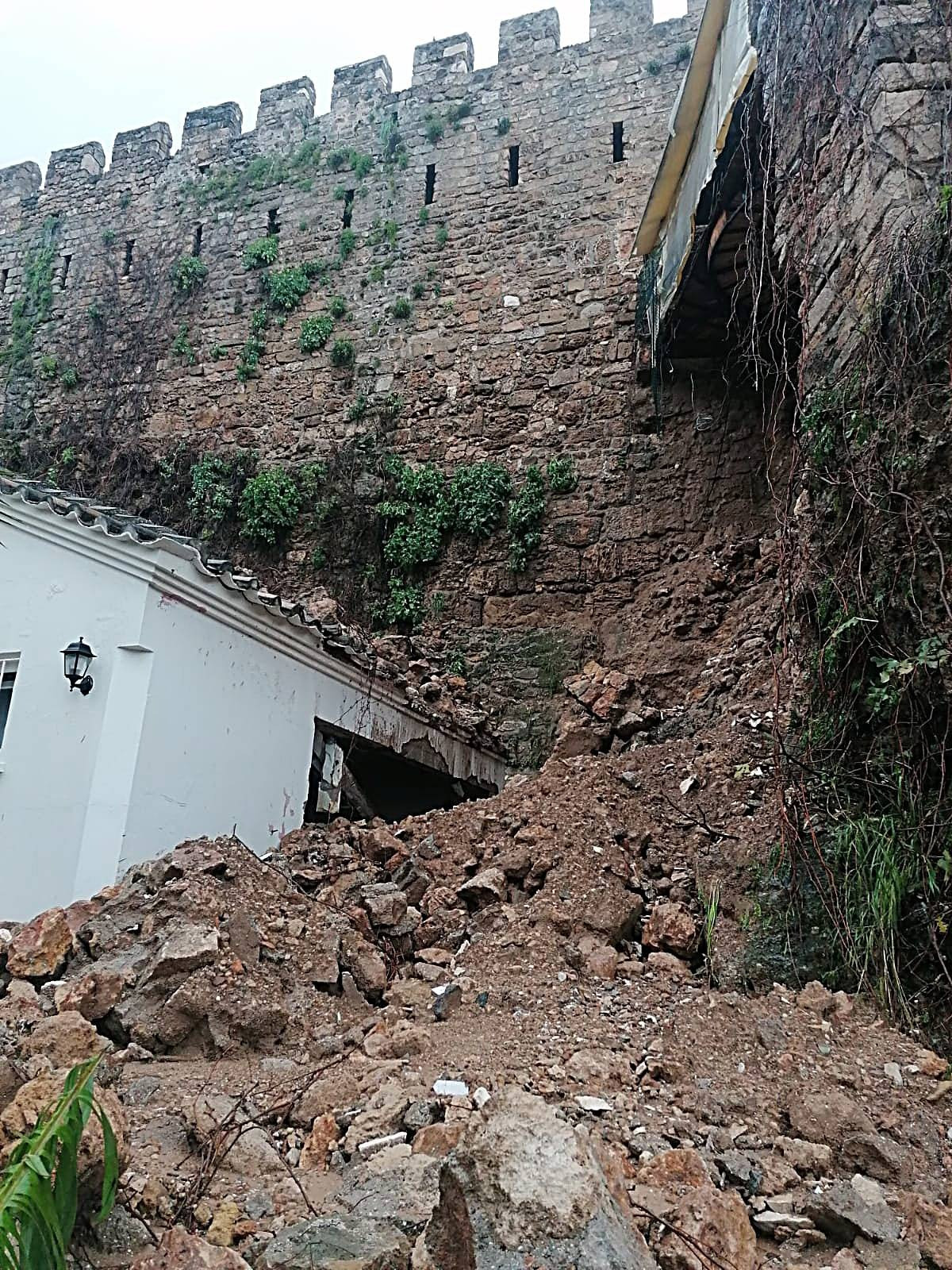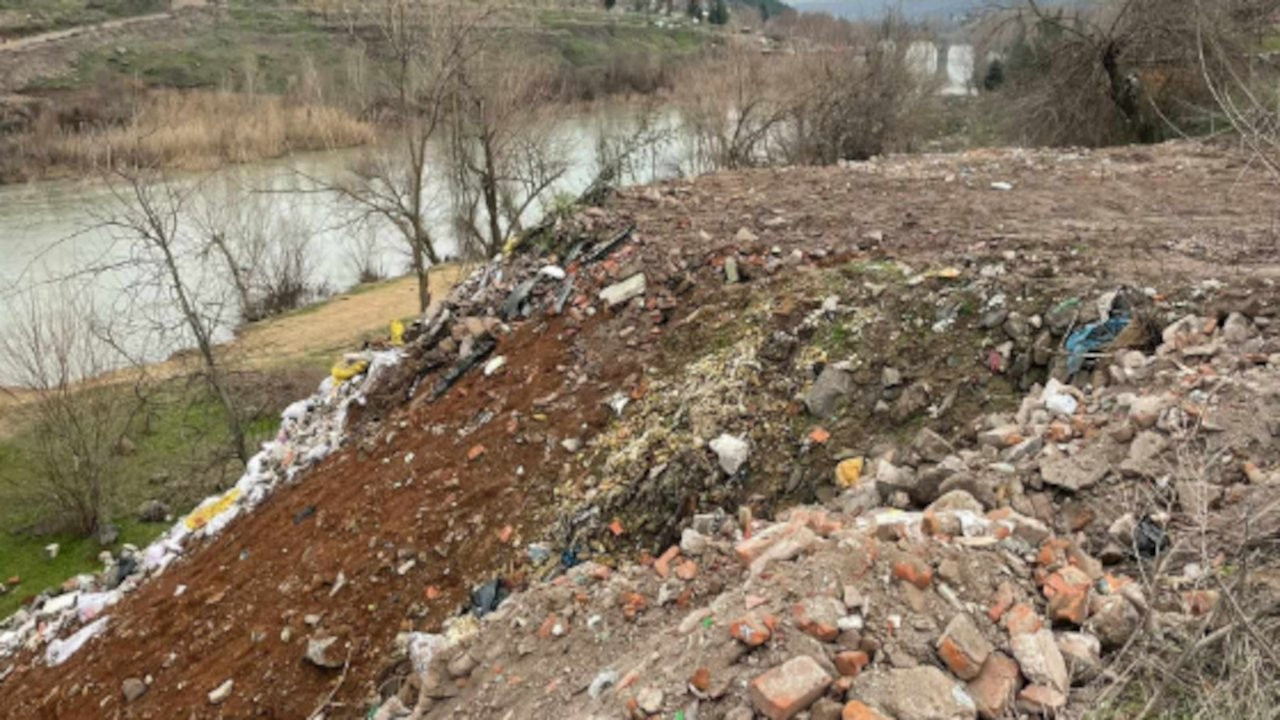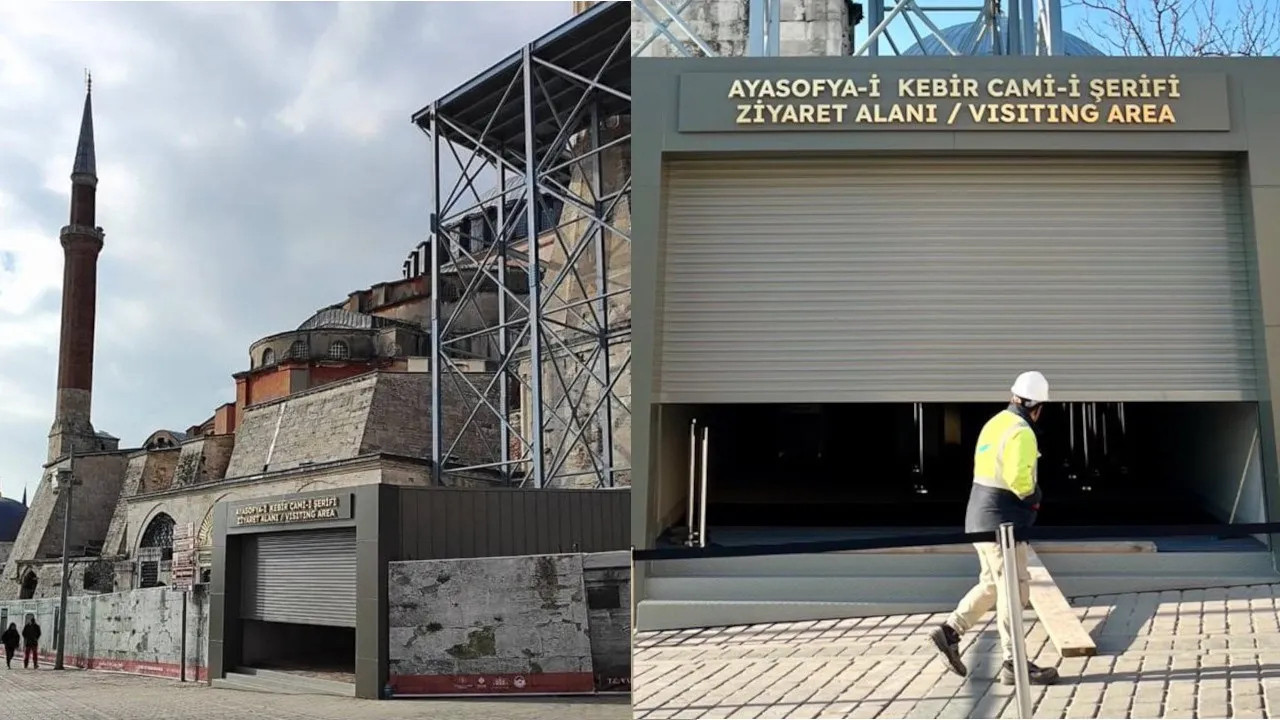Ancient city walls of Antalya crumble after storm, weakened by illegal construction
Ancient city walls in Turkey’s Mediterranean Antalya province have crumbled after extreme weather conditions. A shanty café was illegally placed above the section of the walls that collapsed even though experts had repeatedly warned that illegal structures harmed the thousands-year-old walls.
Ceren Deniz / Gazete Duvar
Ancient walls dating back to the Hellenistic period in Turkey’s Mediterranean Antalya province crumbled on Feb. 14, after two days of storm.
The walls surround the old town in the Kaleiçi district. A portion of the walls overlooking the cliff collapsed, drawing attention to the shanty café built in the 2000s.
Many expert reports and academic publications criticized the illegal buildings placed within the Kaleiçi ancient city walls, which are under the control of the Cultural Heritage Protection Board of Antalya as an “urban archeological protected site.”
Businesses have modified the walls at will, adding walls, windows, lighting fixtures, and sound systems into the holes. Experts warned against the damage, saying the walls could “collapse at any moment,” to no avail.

Architect Nejat Üreğen, who led the restoration of the walls, said that illegal construction done before the zoning plan to protect Kaleiçi came into effect in 1992 was not punished, or even recorded as an irregularity.
The Turkish Court of Accounts (Sayıştay) had reported on the illegal modifications in zoning plans of the ancient city. The “2023 Urban Violations Report” by the Antalya Urban Watch Platform (AKİP) revealed that the Culture and Tourism Ministry listed the state-owned properties near the collapsed portion of the walls for sale.
The same property was previously rented out by the ministry and turned into a hotel and restaurant. The report noted that the ministry jeopardized the wellbeing of the ancient walls by renting out or selling state-owned properties around it, and not following through with proper monitoring.
The long history of institutional neglect, combined with the harsh weather conditions that paralyzed Antalya, led to the collapse of the historical structure. Heavy storms, rain, and winds were in effect in Antalya for two days. Turkey’s Meteorological Service had issued a “code orange” warning for the province. Hundreds of homes and businesses were flooded, and cars were damaged as they were dragged in flooded roads.
(English version by Ayşenaz Toptaş)


 UNESCO heritage site in Turkey's Diyarbakır suffers from unmonitored debris dumpingDomestic
UNESCO heritage site in Turkey's Diyarbakır suffers from unmonitored debris dumpingDomestic Turkey places roller shutter door to 1500-year-old Hagia SophiaCulture
Turkey places roller shutter door to 1500-year-old Hagia SophiaCulture Footage of crumbling concrete reveals damage in Istanbul’s Hagia SophiaCulture
Footage of crumbling concrete reveals damage in Istanbul’s Hagia SophiaCulture